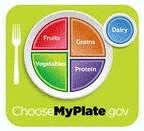Nutrition and Health Sciences, Department of

Department of Nutrition and Health Sciences: Dissertations, Theses, and Student Research
Date of this Version
Spring 5-2010
Document Type
Thesis
Abstract
Adipocyte fatty acid binding protein, aP2, present in macrophages has been implicated in the integration of lipid metabolism and inflammatory response, contributing to development of insulin resistance and atherosclerosis. We investigated the modulation of aP2 expression by inflammatory insults and fatty acids in RAW 264.7 macrophages. When the cells were incubated with lipopolysaccharides (LPS; 100 ng/ml) or 10 ng/ml of tumor necrosis factor α for 18 h, aP2 mRNA and protein levels were drastically increased. Unsaturated fatty acids (100 μM of 18:1, 18:2, 18:3, 20:5 in complex with BSA), but not saturated fatty acids (16:0), significantly repressed the basal aP2 expression and abolished induction of aP2 expression by LPS. Trichostatin A (TSA), a histone deacetylase (HDAC) inhibitor, increased aP2 mRNA levels but abolished the repressive effect of 18:2 on aP2 expression in unstimulated and LPS-stimulated macrophages. Cells transfected with siRNA targeting aP2 showed a relationship with cyclooxygenase-2 (COX-2), but not other pro-inflammatory mediators. In summary, our data suggest that unsaturated fatty acids may inhibit the basal as well as LPS-induced aP2 expression by mechanisms involving HDAC in RAW 264.7 macrophages and that there may be a link between COX-2 and aP2-repression by unsaturated fatty acids.


Comments
A thesis Presented to the Faculty of The Graduate College at the University of Nebraska In Partial Fulfillment of Requirements For the Degree of Master of Science Major: Nutrition & Health Sciences Under the Supervision of Professor Ji-Young Lee Lincoln, Nebraska May 2010 Copyright 2010 Sara L. Coleman